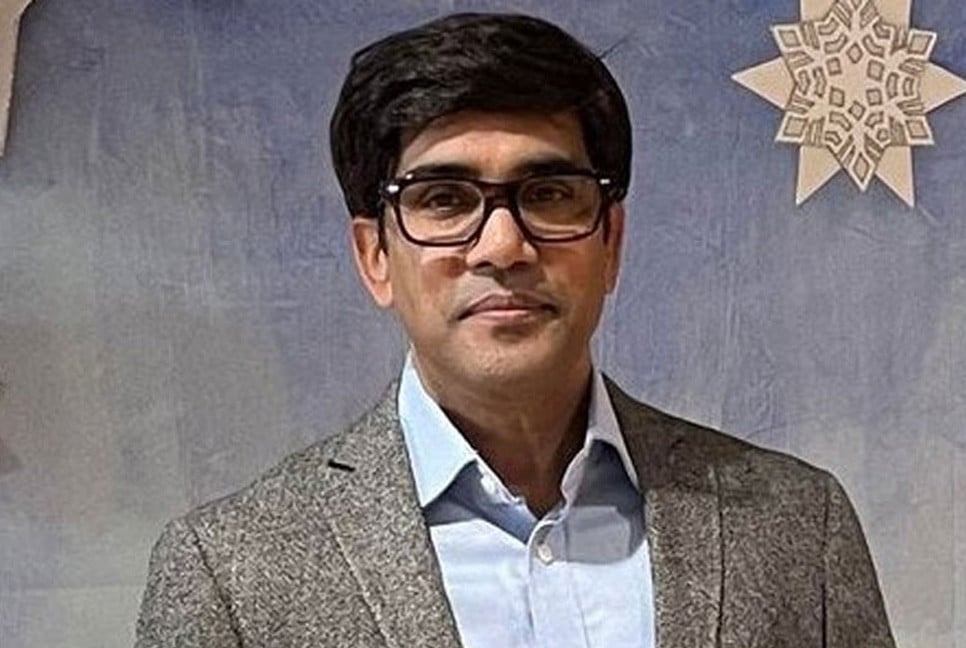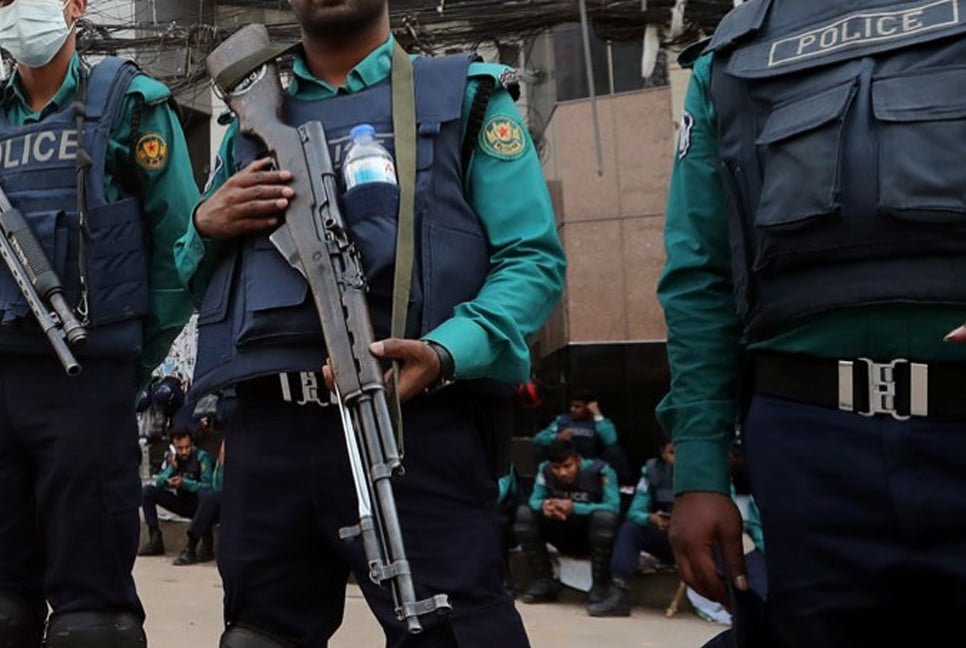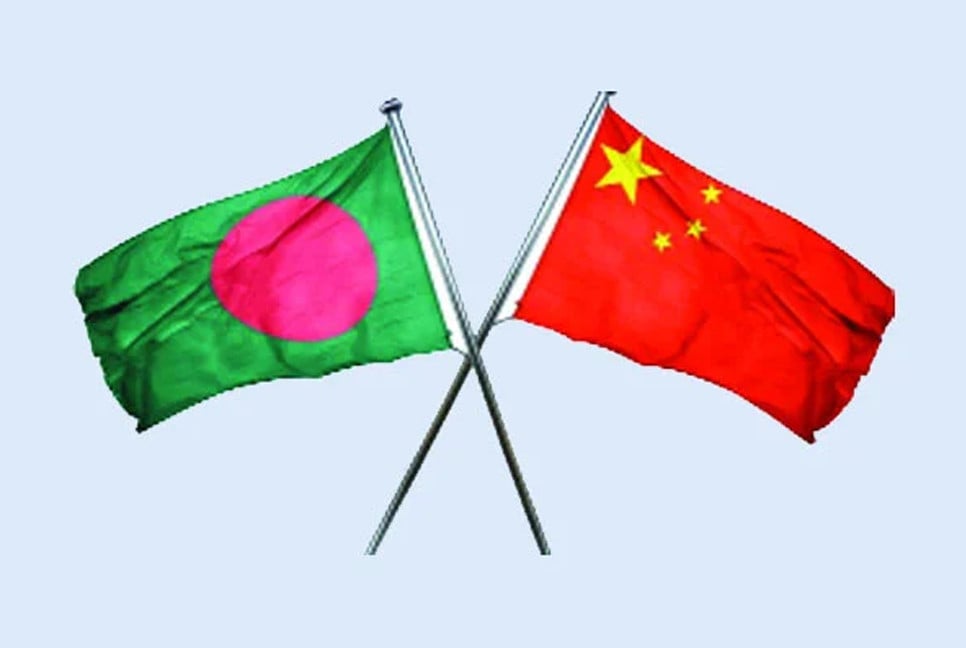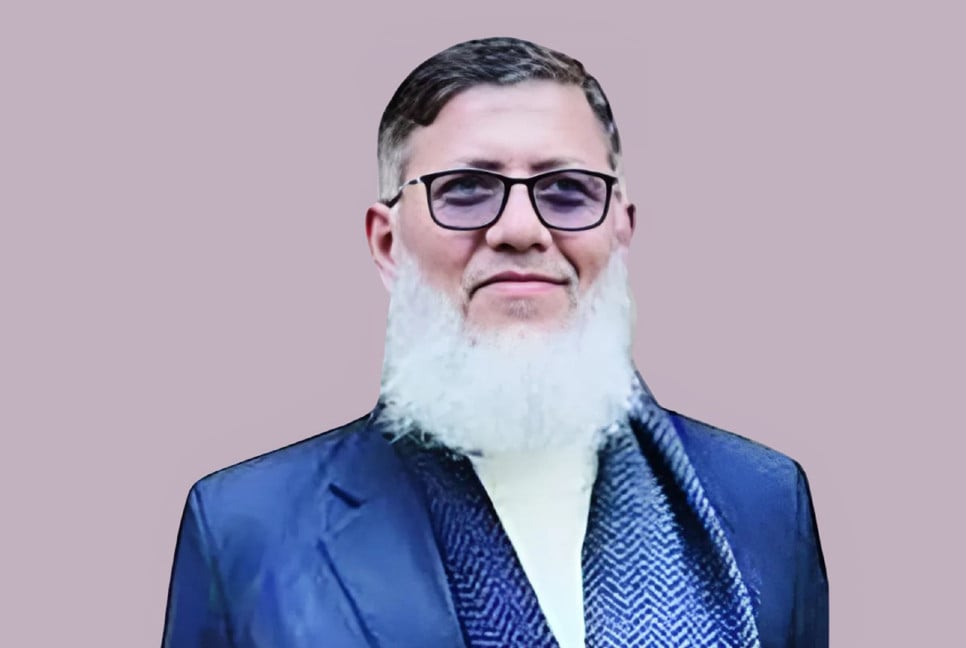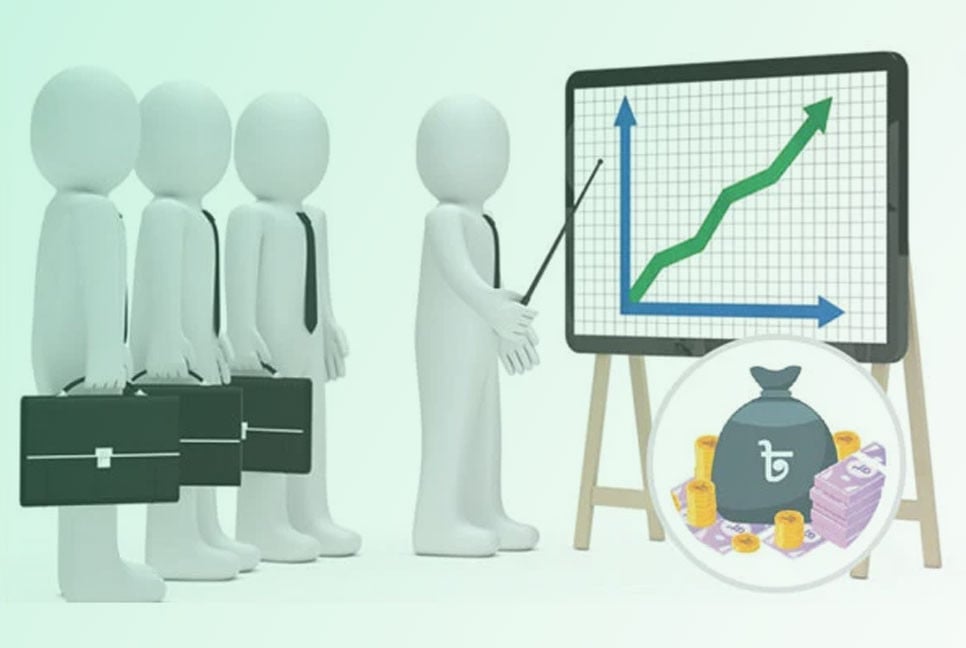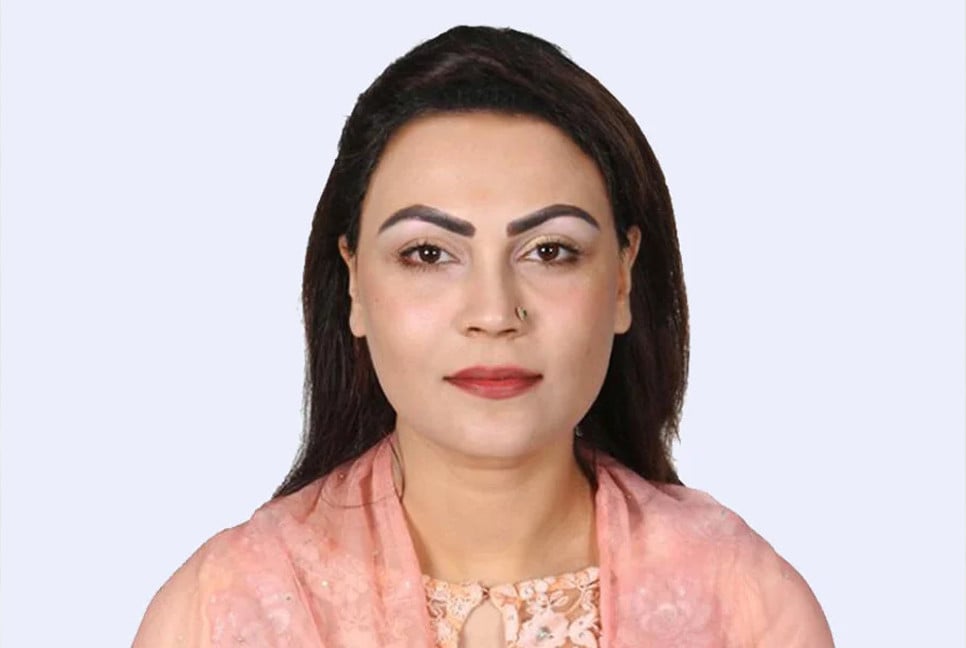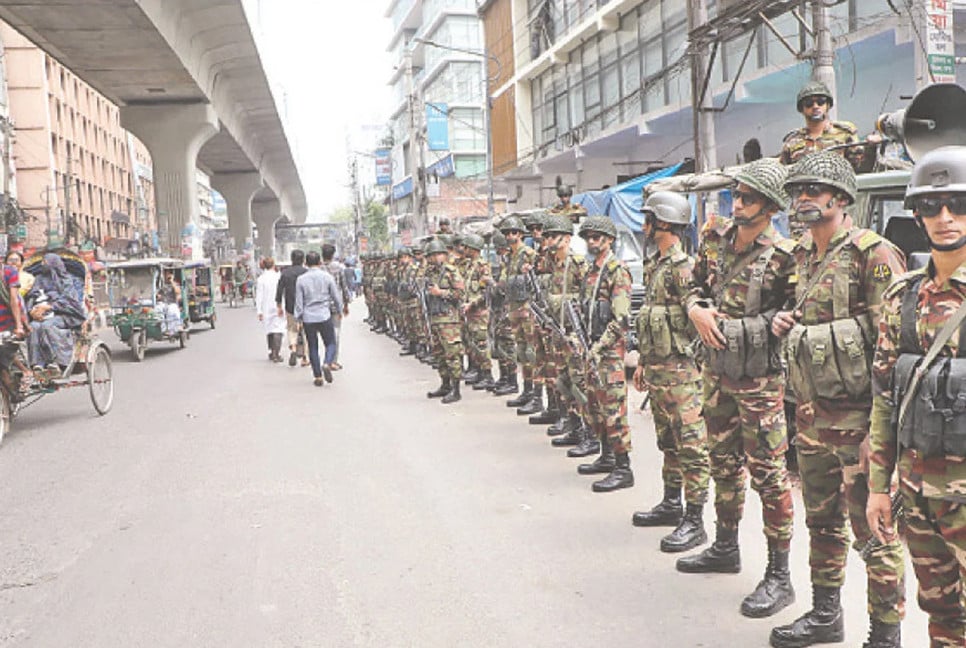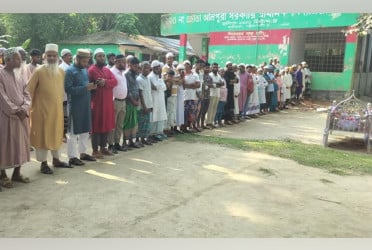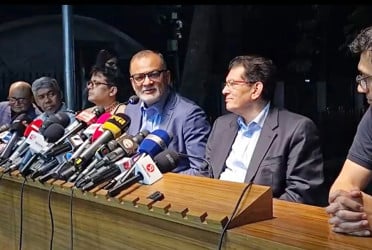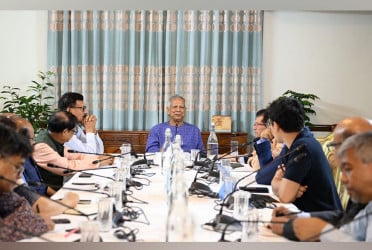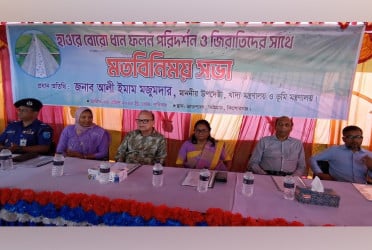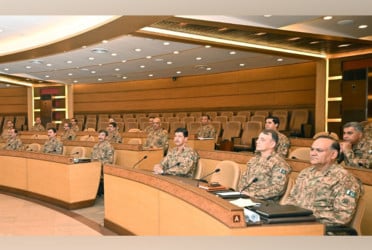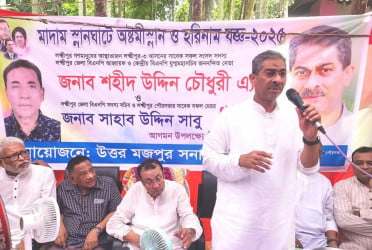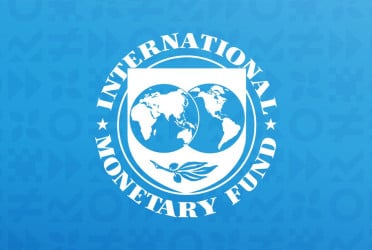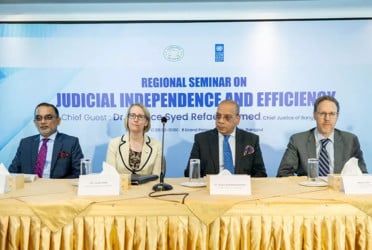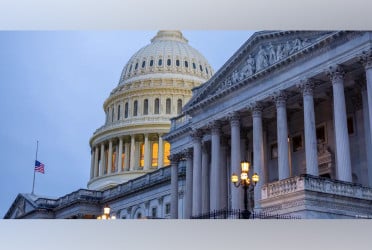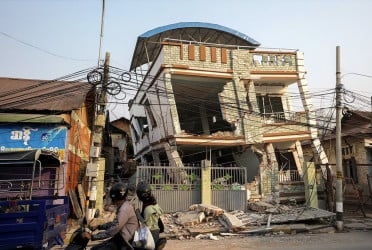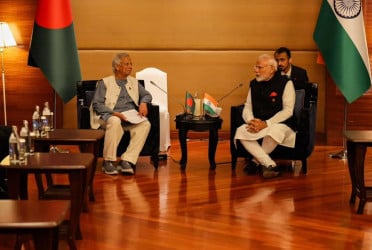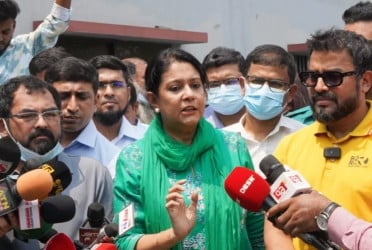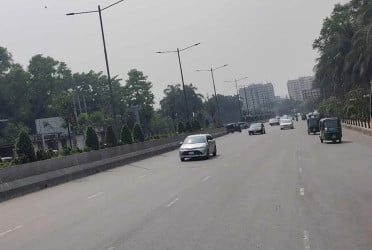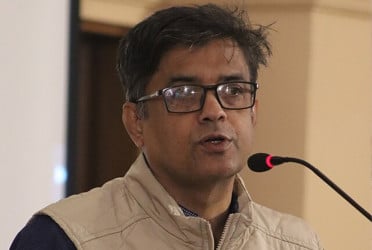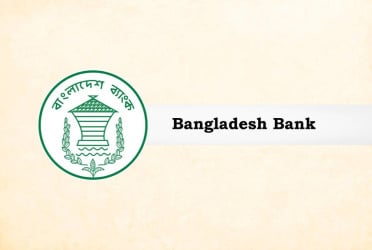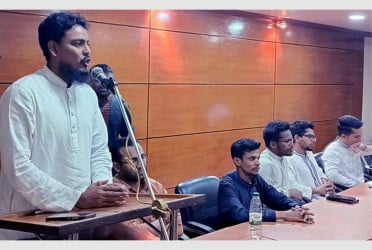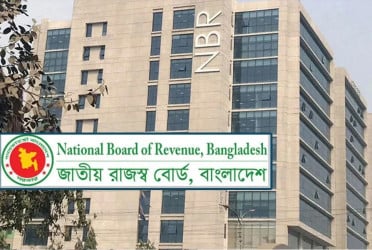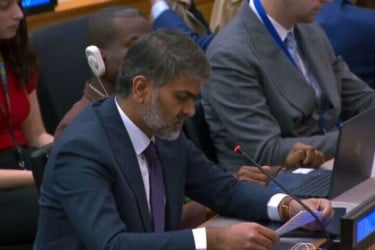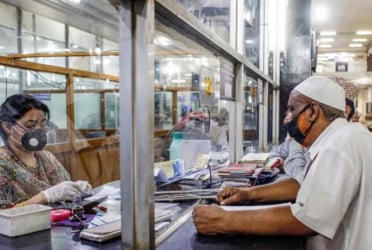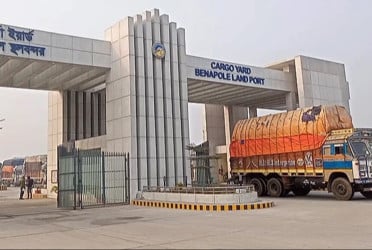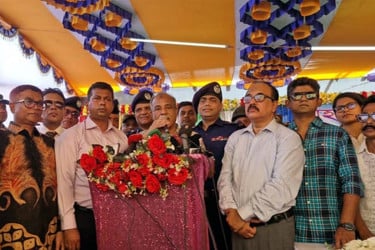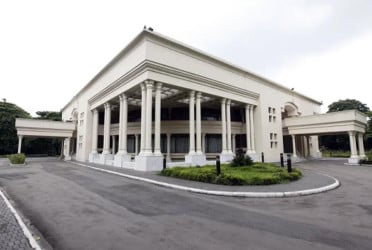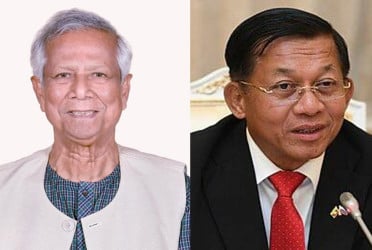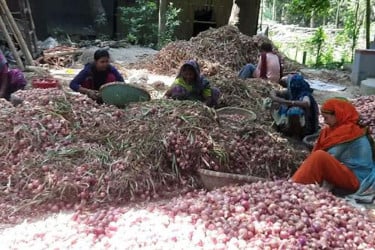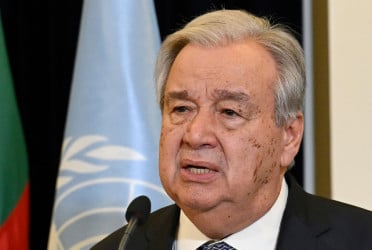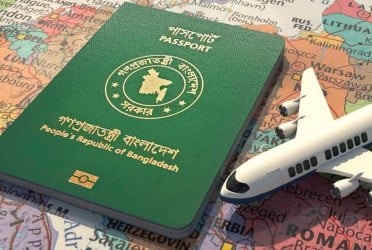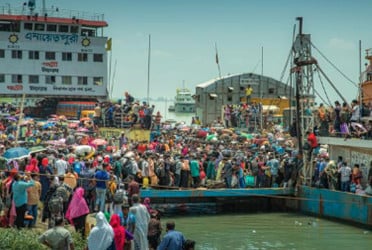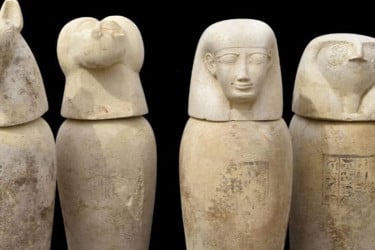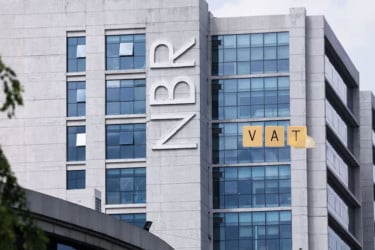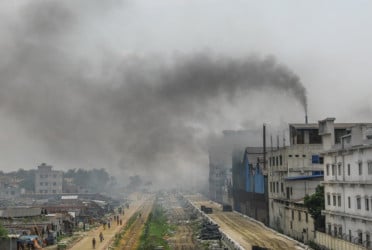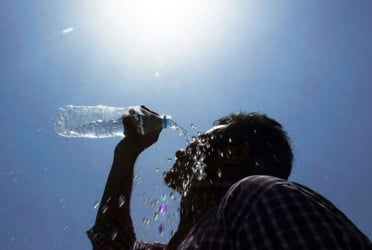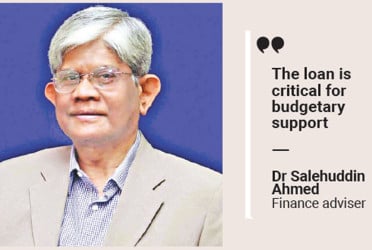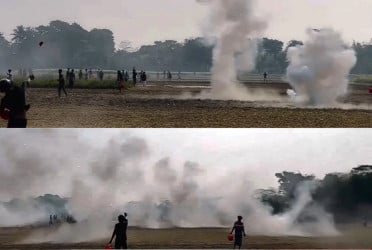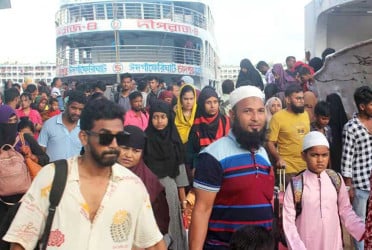The closing months of 2024 were eventful for country’s politics. As the New Year begins, question emerges amongst country people whether this year will bring similar events. The discussion has gained further momentum in the current context.
People hoped for the establishment of the rule of law, reduction in commodity prices, the alleviation of daily-life crises, and the restoration of peace, order, and security in the country, following the July revolution. But, these expectations have not been met.
As a result, hopes and apprehensions are circling among the country people.
Following Dr Muhammad Yunus’s address to the nation on December 16, it seems the New Year may not bring much comfort for us. In his speech, he presented a possible scenario regarding the National Parliament Elections. He said that the election could take place either at the end of 2025 or in mid-2026.
He also explained why he fails providing a specific timeframe for the election. Dr Yunus stated: “If we proceed with only a few reforms and ensure the grounding of an accurate voter list, it might be possible to hold the election by the end of 2025. On the other hand, if we incorporate more comprehensive reforms—based on the Election Commission’s recommendations and national consensus—it could require an additional six months or more.”
In response to CA’s remarks on election, the country’s main political party Bangladesh Nationalist Party (BNP) has expressed its disappointment. Since the interim government assumed power, BNP has been asking for announcement of a precise election roadmap. The party men say if the caretaker government can arrange elections with only three months then why this government needs additional time? The BNP men say that the necessary reforms can be carried out within three to six months to hold the election.
They have hinted at ulterior motives for the delay and emphasized that there is no obstacle to conducting the election at the beginning of 2025. BNP Standing Committee member Salahuddin Ahmed stated that their observation and analysis suggest that the required reforms would not take more than four to five months.
Not only BNP, the other political parties have the same thoughts ahead of the National Parliament Elections. However, Bangladesh Jamaat-e-Islam appears to be in favor of giving the government more time for reforms. The reason behind this approach is their desire to organize the party and prepare adequately to participate in the election. Responding to a question from a national daily, Jamaat Secretary General Mia Golam Parwar said: “If it ensures free and fair elections, the nation will tolerate some delay.”
During a BNP rally in Thakurgaon on December 23, BNP Secretary General Mirza Fakhrul Islam Alamgir called on everyone to unite and take to the streets once again for the ‘rights to vote and food.’ His statement came a week after Dr Yunus shared a possible timeline for national elections. BNP is intensifying pressure on the government for an early election. If the BNP launches a movement for an early election, the question arises— who will ally with them?
In the absence of the Awami League (AL), potential allies among other parties include Jamaat, Jatiya Party, and some center-left parties. However, it is uncertain whether these parties support BNP on election issue.
It’s been five months since the July uprising. Although BNP leader Tarique Rahman has been acquitted of major charges against him, doubts linger as to why he is not returning to the country or is unable to do so. This has sparked public speculation— could this be part of the ‘Minus Two Formula’? While a direct answer to this question remains elusive, it is not difficult to infer possible reasons.
BNP, having been out of power for nearly 16 years, has faced numerous setbacks. The longer it remains out of power, the more its popularity risks erosion. Allegations of land grabbing, extortion and abuse of power have surfaced against party members, and though the central leadership may demonstrate positive actions, such efforts are seldom replicated at the grassroots level.
Another thing is the emergence of a new political party under the auspices of the interim government. It is known that the party aims to prepare for the upcoming election and position itself for future governance during this period of reform.
Additionally, the Jatiya Nagorik Committee, led by student movement activists, has declared its intent to shape the political landscape. The committee’s convener stated that there will be no election in Bangladesh before those aligned with the Awami League and fascists are brought to justice (Prothom Alo, December 17).
AL is currently facing the wrath and resentment of students and the public across the country. They are likely contemplating strategies to reorganize politically and make a comeback. Meanwhile, Sheikh Hasina has started addressing her party’s leaders and activists stationed in various countries through online platforms. Therefore, the question arises as to how much elections are currently a priority for them. Their primary concerns seem to be dealing with attacks, cases, and securing the release of imprisoned party members. In this context, election issue could be a blessing for them. If the BNP remains isolated on the election issue, the AL might align with them. AL also will try to reorganize the party taking the advantage of the situation.
If the interim government’s position remains unwavering in the context of BNP’s aspirations, the situation could become complex and chaotic. In this case, the level of military support to the interim government would be an important question. If the government takes a firm stance, the opposition will also have to strengthen their position.
If Jamaat takes a stand in favor of the interim government on election issue, and if the King’s Party joins them, a different political polarization and clearer lines of allies and adversaries will emerge. In this case, the ousted AL may also re-enter the political arena through some kind of equation.
It is said that in politics, there are no permanent enemies or final words. Therefore, if they come to an understanding with BNP, it should not be surprising. Already, such signals have been sent from the AL’s side. If such a reality unfolds, two main streams will likely emerge in the political struggle in the New Year. In that case, what could be the equation centered on the movement and the election?
(1) Will the main contender for power, BNP, participate in the election alone or as part of a coalition? They have already announced the idea of a national government, but the partners and the way it will be structured remain unclear. Currently, they have no coalition. If this happens around the election, who will be involved and how it will benefit BNP is a significant question.
(2) Will Jamaat and the Islamic parties form a separate coalition to contest the election? Will they have any understanding with the new party in the works? If that happens, it will depend on how much of a challenge this will pose for BNP, and based on that, they may decide on their strategy.
(3) AL is not banned, although their activities are not public. BNP has already clarified its stance on AL, and they have no objection to elections. If AL participates in the election, their future political strategy will depend on how much of a challenge these two factions create for whom in the election.
(4) There are many smaller and medium-sized parties outside other than two major parties. Although they may not have a significant impact on the election, their social presence cannot be ignored. If all of them come together and participate in the election as part of a larger united front, with well-planned candidates, it could create a visible new stream in the political landscape.
It seems that the questions and concerns raised at the end of the year in Bangladesh’s politics will influence the New Year. If this happens, it will not be surprising if a movement against the interim government emerges over the election issue. While this government has a certain level of acceptability, it is facing an image crisis on various issues. Therefore, it is important to present a clear roadmap for reform and power transfer, without creating confusion through verbal complexities. This will be the path to avoiding potential political complications ahead. Failure to do so may lead to a globally renowned figure being criticized, which no one desires.
Writer: Researcher and Political Analyst
Translated by Afsar Munna

